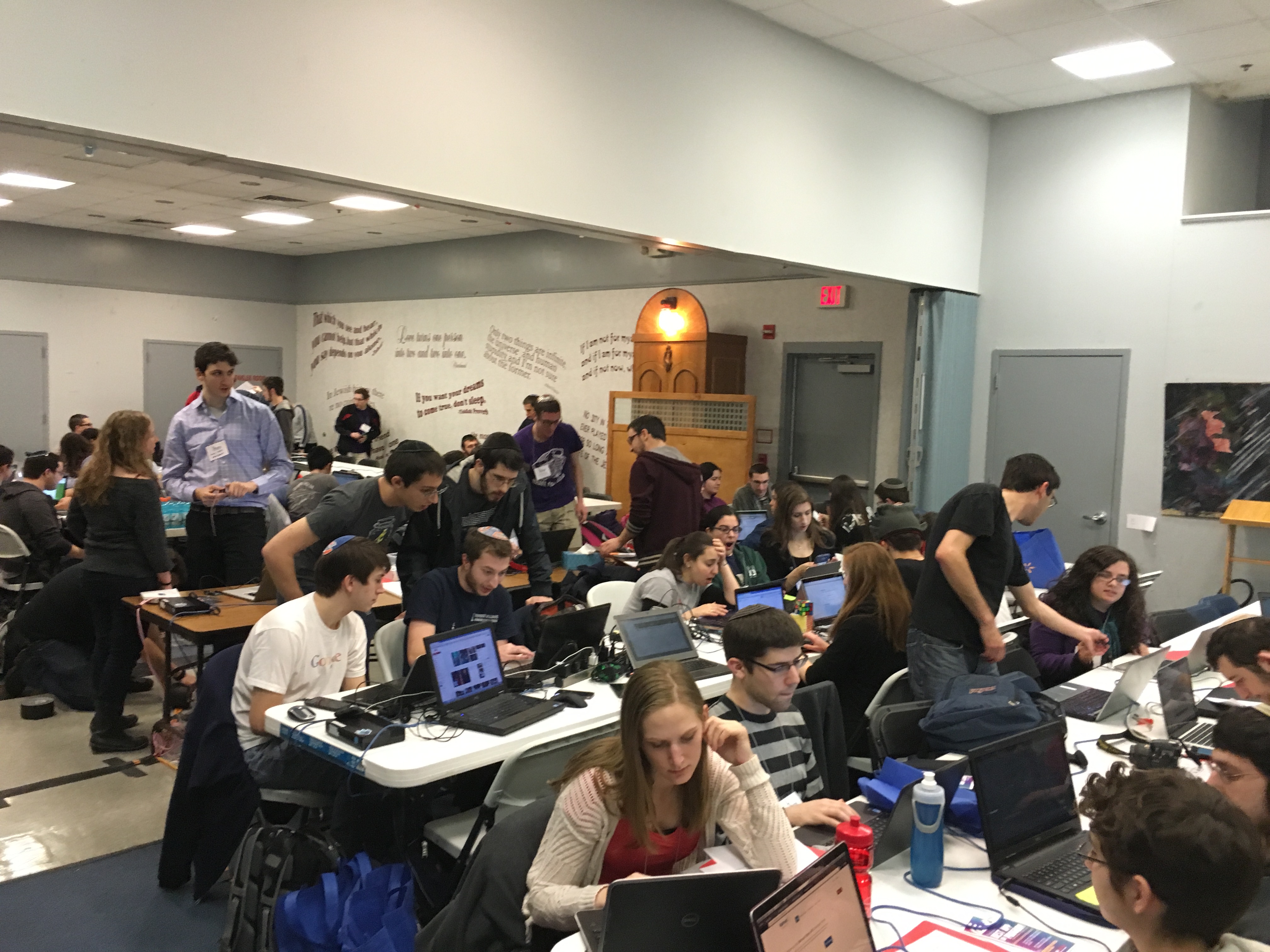By Samuel Antezana
For The Diamondback
Senior Jerome Kelman signed up Saturday to participate in a hackathon event with several teammates for fun, but he left thinking about how the team could apply its project to the real world.
“We have a Web app that allows you to pull up an image and slide the same image to another phone, which makes the image bigger while splitting it across two phone screens,” said Kelman, a computer science and mathematics major. “The app could be used to grab people’s attention and help children’s social skills, because it incorporates the human interaction part into education with technology.”
Kelman and his team were among more than 115 participants who signed up to take part in the JHacks hackathon at Maryland Hillel, the Jewish student center, over the weekend.
The two-day event invited people from within and outside the University of Maryland community to program and build whatever computer science or technology projects they could think of while accommodating Jewish services.
“All hackathons across the country’s college campuses happen over weekends; a potential problem is that there are individuals with religious observances that preclude them from participating,” said senior Akiva Futter, a computer science major and the president of JHacks: Jewish Students in Computers, Engineering, and Technology at this university. “The idea of this hackathon was to have an event that everyone and anyone of all faiths and ethnicities are invited to.”
The hackathon began Saturday evening and continued until Sunday night. People from several universities came to participate, with contestants from schools such as Cornell University and Lander College for Women, and about 50 from this university.
Each contestant could register as a single hacker, a single hacker looking for a team or register with a team. Organizers shot out ideas and asked other participants to deliver 30-second pitches for their own projects. By the end of the event, there were more than 20 teams registered.
Projects ranged from fun and creative to serious and service-oriented, such as one titled “Pulse.”
“It helps coordinate search parties for missing people; recently, there have been a lot of missing people in my community,” said Pearl Leff, a student from Lander College for Women. “You sign in, create an account and join a search party, so you can see where people who are searching for a missing individual are going to or have been on the map. It’s much more organized and methodical.”
Many groups’ ideas took hours of collaboration to crystallize. One of the few groups that came in with its mind made up called themselves team #BlessUp, and their project was to create a DJ Khaled soundboard.
“DJ Khaled is a cultural icon, most famous for his Snapchats,” said Marc Leeb, a junior business student. “We got the idea coming into the event because we follow him on Snapchat and we like his sayings.”
The overall winner of the event was “IntelliFlight,” which uses analytics to determine the most pleasant flight experience for the best price.
Participants also competed in sponsored challenges. The winner of the Cipher Tech Solutions challenge was “Proactive Endpoint Monitoring,” which monitors and prevents malicious software from being installed on a user’s computer. The winner of the Walmart challenge was “PackageTracker,” which combines numerous functionalities to send alerts about the status of packages. The winner of the BookHolders challenge was “Final Exam Scheduler,” which minimizes scheduling conflicts but also accounts for student preferences.
“We got many students involved who have never had the hackathon experience before, and there is now a lot of momentum looking forwards to next year,” Futter said.



